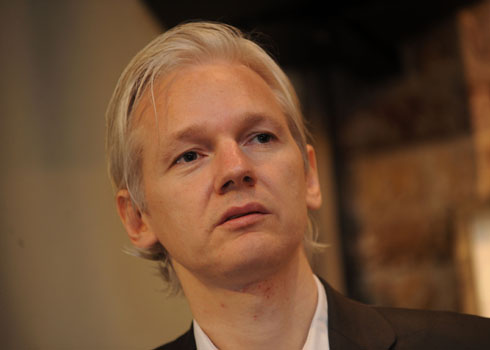Yesterday, The Daily Beast reported that the National Security Agency is aware that the FSB — the post-Soviet KGB — is closely monitoring Wikileaks, though the U.S. has no “direct evidence” that the Russians are behind the days-long denial-of-service attacks that have brought down the Wikileaks website over and over again.
But why would the Russians care that much? In part, because Wikileaks founder Julian Assange has said that between the leaked cables and other information he got separately, high-level corrupt Russian officials should be worried. And some observers think that Assange’s efforts to expose corruption in Russia could be more harmful to his site and himself than exposing America’s secrets have been. One law enforcement source told The Daily Beast, “The Russians play by different rules,” adding that they would be “ruthless” in their attempts to stop him.
Shortly before Wikileaks began publishing its stash of more than 250,000 leaked diplomatic cables on Sunday, Assange and spokesperson Kristinn Hrafnsson told the Russian newspapers Izvestia and Kommersant that they had dirt on Russian leaders and planned to release it soon.
The Christian Science Monitor reported:
“We have [compromising materials] about Russia, about your government and businessmen,” Mr. Assange told the pro-government daily Izvestia. “But not as much as we’d like… We will publish these materials soon.”
He then dropped a hint that’s likely to be nervously parsed in Russia’s corridors of power: “We are helped by the Americans, who pass on a lot of material about Russia,” to WikiLeaks, he said.
But short of a couple of cables — one of which referred to President Vladimir Putin and Prime Minister Dmitri Medvedev as “Batman and Robin” — nothing particularly salacious has leaked out so far, though Guardian editor David Leigh promised that such revelations are coming.
Anders à slund, a senior fellow and Russia expert at the Peterson Institute for International Economics, noted that the Russian government is well-known in Europe for its cyberattacks. He told TPM, “Russia launched a big cyberattack on Estonian websites in 2007, so obviously Russia has a big cyberattack capability. Estonian authorities took away a monument of a Soviet soldier, and the result was a massive cyberattack on government websites.” He also noted that supposedly unaffiliated Russian hackers launched a massive attack against Lithuanian websites in 2008 over policy disputes between the two countries.
à slund told me, “Of course we can’t know what will come out…. It has not altogether clear whether it will be Russian or US sources,” noting that “Russia today is profoundly and pervasively corrupt. And we have a large number of strange murders that have taken place. One would expect that [the leaks will] be about criminal activities” undertaken by members of the government.
But should, as some observers have darkly hinted, Assange be worried about his own safety (Interpol warrants and calls for his assassination from American politicians notwithstanding), Ã slund suggested that’s not so far off base: “It would be quite logical if somebody does something. It’s not a question of whether [the leaks] are disturbing, it’s whether they are disturbing enough — it’s just difficult to tell where the line is [for those involved in extrajudicial murders].”
He said, “There have been a large number of murders connected to Chechnya, and the question is who in the Russian establishment is responsible for them. Three Russian military intelligence officers were actually charged. And of course there was the murder in London. And the one in Vienna. And of course there are the murders of the five journalists for the leading opposition newspaper.” In that kind of climate, a state-sponsored denial of service attack might well be the least of Assange’s concerns today.









